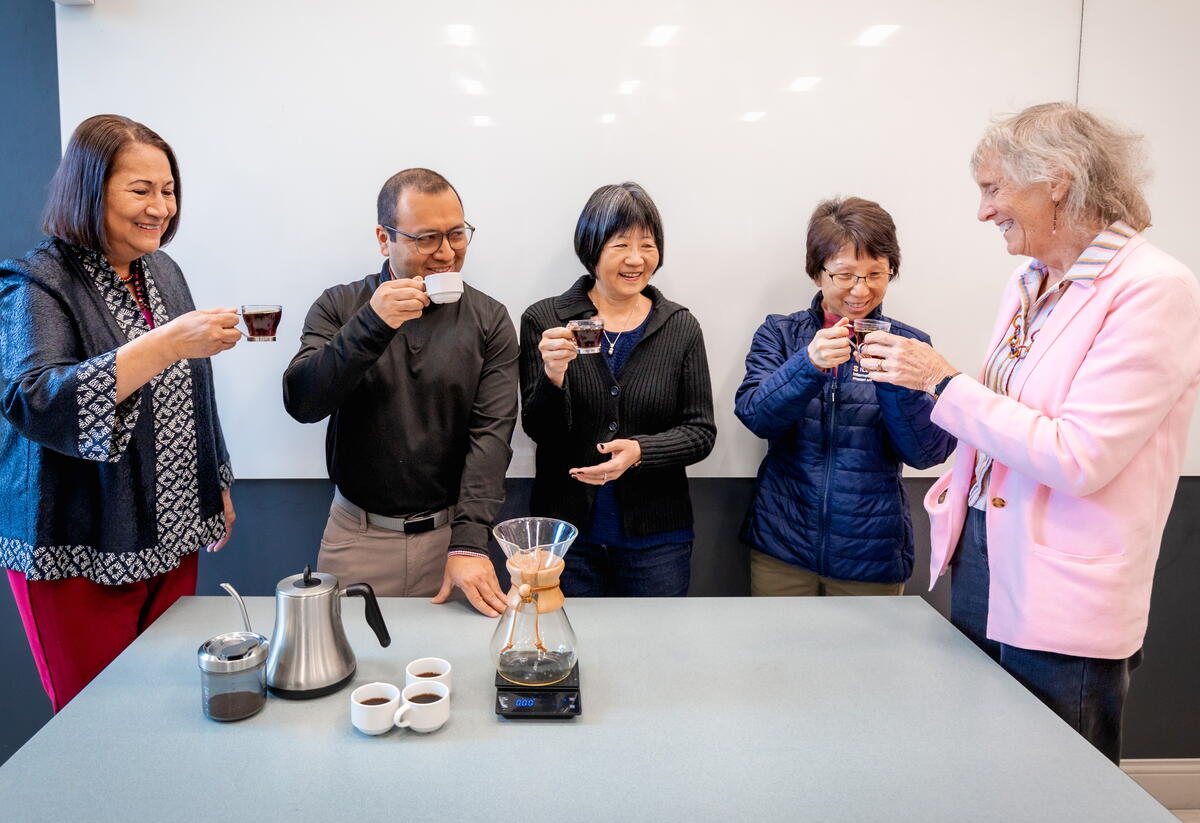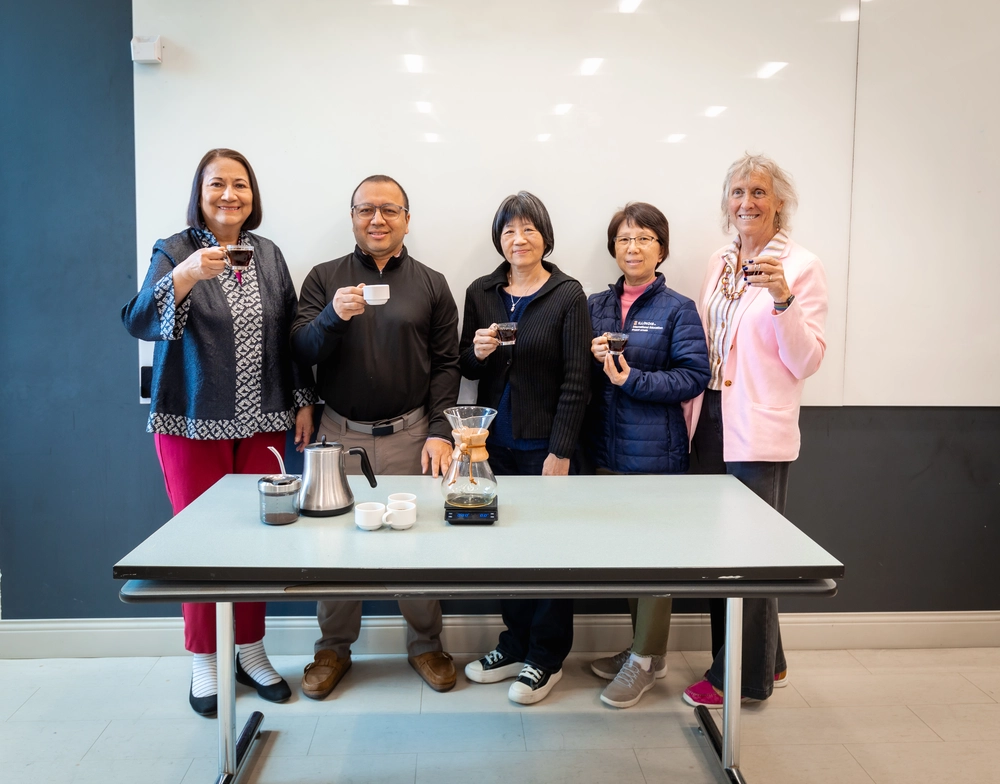
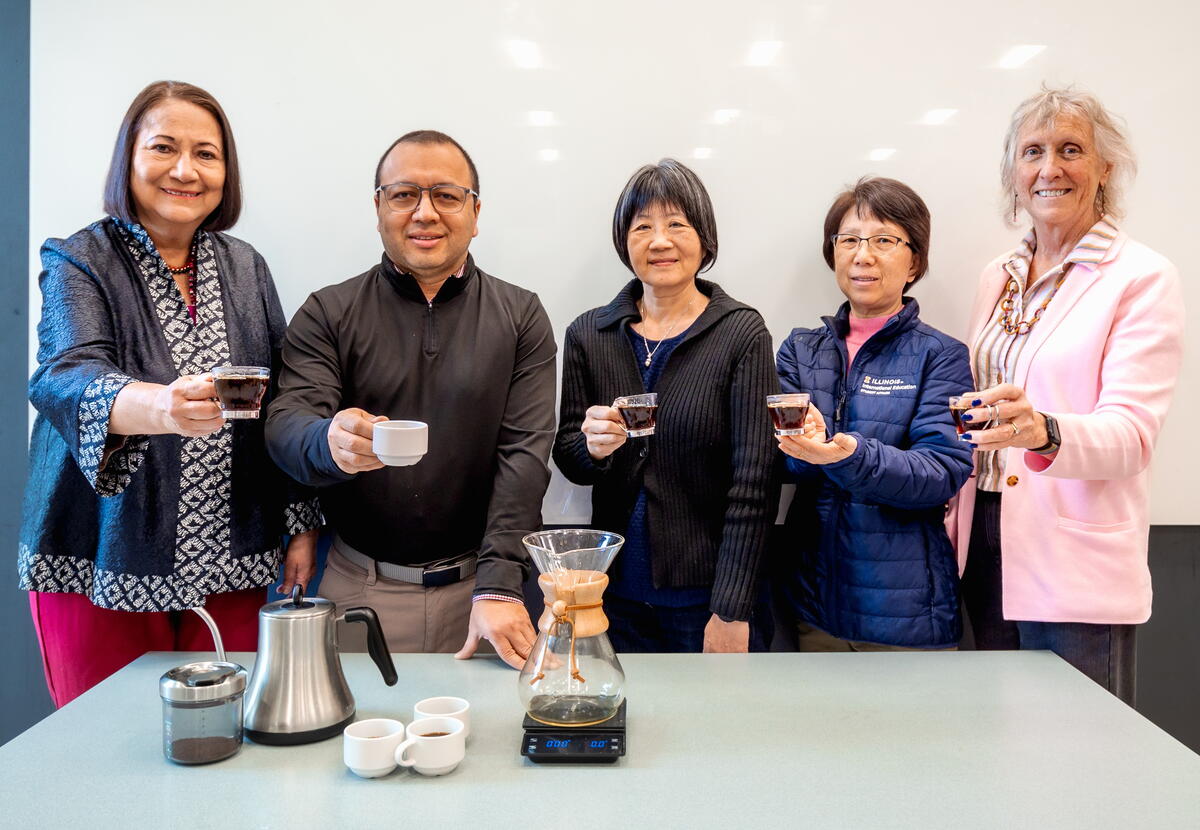
Several years ago, a conversation with a young coffee farmer from Panama stirred in José Andino Martinez a deep curiosity about the chemistry of coffee.
The farmer impressed upon Andino the significance of the coffee bean growing and roasting process in producing a wide variety of attributes that determine the taste and aroma of coffees, especially those with high quality flavor profile.
“Because I'm a chemist, I started to be more curious about what's going on. What's in it that may not be in something that's not specialty coffee?” Andino said.
A senior lecturer in chemistry who has traveled extensively in Central America leading chemistry study abroad programs, Andino's curiosity ignited a new appreciation for the flavor and aroma of coffee and for the chemistry in the entire process from the coffee plants to enjoying a cup from freshly ground beans. Through his own research and experimentation, Andino has gained a deep knowledge of the entire process, from farm to cup, and now roasts and grinds his own coffee beans at home.
“Most people who drink coffee are not really thinking about this,” Andino said.
Now a coffee aficionado, Andino is excited to combine his passions – chemistry, coffee, and study abroad – and share them with Illinois students in a new eight-week undergraduate course. CHEM 199: Coffee, Chemistry, and the Community will be offered in the College of Liberal Arts & Sciences for the first time in Fall 2025. It includes an optional study abroad experience over Winter Break in Panama.
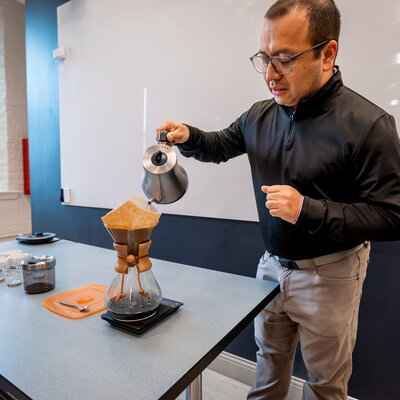
The course was developed through a transdisciplinary, community-based learning program funded by the University of Illinois Urbana-Champaign’s Vision 2030 Global Strategy that calls for the university to dedicate efforts and resources on the African continent, Latin America, and parts of Asia that are currently underrepresented in the university’s global profile and pursue engagements in those regions.
In the classroom, students will learn about the chemistry and biology of coffee – how the environment, the plants, and the soil impact the makeup of the beans, which affect the taste and other characteristics of the coffee. They will learn about coffee’s effect on the body, and they will analyze samples of coffee to understand the chemistry.
“I want people to know more about the different methods of extracting coffee and seeing the advantages of doing it one way versus the other,” Andino said.
An important aspect of both the classroom and study abroad experience, Andino said, is for students to learn about the communities that are involved in the production of this coffee and how favorable the work is to the people in those communities.
“I think it is important, in my opinion, for consumers to have a better understanding of where their coffee is coming from and not only understand the natural environment that contributes to the attributes of the coffee, but also the social environment in which it’s being produced,” he said.
In the study abroad portion, students will have the opportunity to travel to Panama and meet with coffee producers and coffee farm workers, learn the coffee production process, and assess aspects such as risks related to climate change on coffee crops and farm working conditions. Students will record observations, interview members of the coffee growing community, and create a strategy for improving processes.
The classroom portion blends a variety of disciplines with the expertise and experiences of Andino and five other instructors from several disciplines on campus, including chemistry, biology, food science and human nutrition, medicine, agricultural and biological engineering, and International Education.
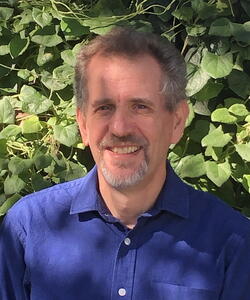
James Dalling, director of the Integrative Biology Honors Program and a plant biology professor in the School of Integrative Biology in the College of LAS, who studies ecology of tropical forests and carries out much of his research in Panama, focusing on how soil nutrients and microbes impact trees.
And in CHEM 199, Dalling said he will introduce students to the montane forests where coffee is grown, the impacts of coffee cultivation on biodiversity, the challenges imposed by climate change, and attempts to manage coffee production in more sustainable and resilient ecosystems.
Elvira de Mejia, a professor of food science in the College of Agriculture, Consumer and Environmental Sciences, is a world leader in the health benefits of bioactive compounds in plants. Dr. de Mejia’s research investigates how bioactive compounds in various foods, including coffee, impact human health, and has studied whole and individual plant components for their effects on obesity, diabetes, and cancer.
In this course, she will teach students about the physiological effect of the main bioactive compounds in coffee, and not just caffeine.
“I will talk about what happens when we drink one cup of coffee that contains thousands of different compounds in different concentrations,” de Mejia said.
What happens depends on various factors, including the type of coffee and the method of extraction, whether espresso or regular coffee, and even whether filters were used, which eliminates compounds.
“When we drink coffee, there are so many things happening. The caffeine is absorbed immediately, almost 100 percent. It goes to the brain, and we start developing an alertness and increased energy,” she said.
Dr. de Mejia will share research about other benefits of drinking coffee, like muscle relaxation and degradation of lipids, which can help prevent Type II diabetes. And she will share research concerning the potential toxicity, especially for pregnant women, children, and adolescents. She said she will emphasize certain compounds in addition to caffeine, because studies have shown them to be powerful in the body.
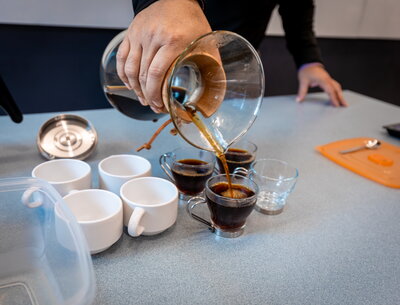
Ann-Perry Witmer is a U. of I. Civil and Environmental Engineering graduate and a teaching associate professor at the Carle Illinois College of Medicine and in the Agricultural & Biological Engineering department who has extensive experience in humanitarian engineering work with communities in Central America and the Caribbean. Her project travels have taken her to Central America, Africa, Asia, the Middle East, and South America, where she has experienced the prevalence and importance of coffee in many communities.
“In each place, coffee had a different meaning, a different value and a different identity,” Witmer said. “It has much more significance than a crop or product. As we look at coffee and all the things involved with it – climate change, the fact that markets are going to shift, the growing seasons are changing – how do we address this from a contextual perspective and understand the significance of it to people.”
Yun Shi, senior director of International Education at Illinois, said she will help students understand the different waves of coffee and appreciate various coffee cultures around the world.
“Connecting practices in coffee production with societal dynamics of local communities, students will gain insights in the understanding of the global connection of the coffee industry, sustainable farming and eco-social justice,” she said.
Tina Huang is the director of General Chemistry and senior lecturer in the Department of Chemistry in the College of LAS. She is an analytical chemist who is interested in the chemical composition of coffee and how these are measured. She loves teaching and enjoys showing students that chemistry is everywhere and in our everyday life, including the coffee we drink. “I’m going to talk about the analysis aspect of coffee and really try to present a chemist’s point of view of what coffee is and try to give them a chemist view but in a general way that they can relate to in everyday life,” Huang said.
One example, she said, is comparing a water filter to coffee extraction -- when hot water poured over grounds extracts the desired compounds like caffeine, carbohydrates, acids, and other compounds that contribute to its flavor. In extraction, those compounds pass through a filter, but a water filter holds undesired compounds from passing.
Huang said she will do some hands-on demonstrations to illustrate that and show how we do analysis.
"How do we know caffeine is in there? I will show them how we know. There are certain techniques in chemistry like spectroscopy and chromatography that we can use, and those are terms people can be afraid of, and I want to introduce these terms, so they understand what it means and how it relates to coffee analysis," she said.
Huang said chemistry is such a wonderful science, so the hope is this course can help students connect with chemistry.
“And realize it is really cool…chemistry is everywhere,” Huang said.
Andino hopes students can be exposed to something new and different through this class and the study abroad component that pushes them out of their comfort zone and thinking about solutions to problems in a new environment.
“I have always had the interest of making chemistry be a leader in study abroad because chemistry is global,” he said. “It's possible for us to communicate with people on the other side of the world because we both understand things about chemistry in general. And that’s beautiful to know that you can communicate with people from other places speaking the same language.”
While working to establish “CHEM 199: Coffee, Chemistry, and the Community,” Andino has learned about other scholars on campus who work with coffee and sees a vision for expanding the content presented in this course in the future.
“There are people whom I would love to include in future versions of the course,” he said.
